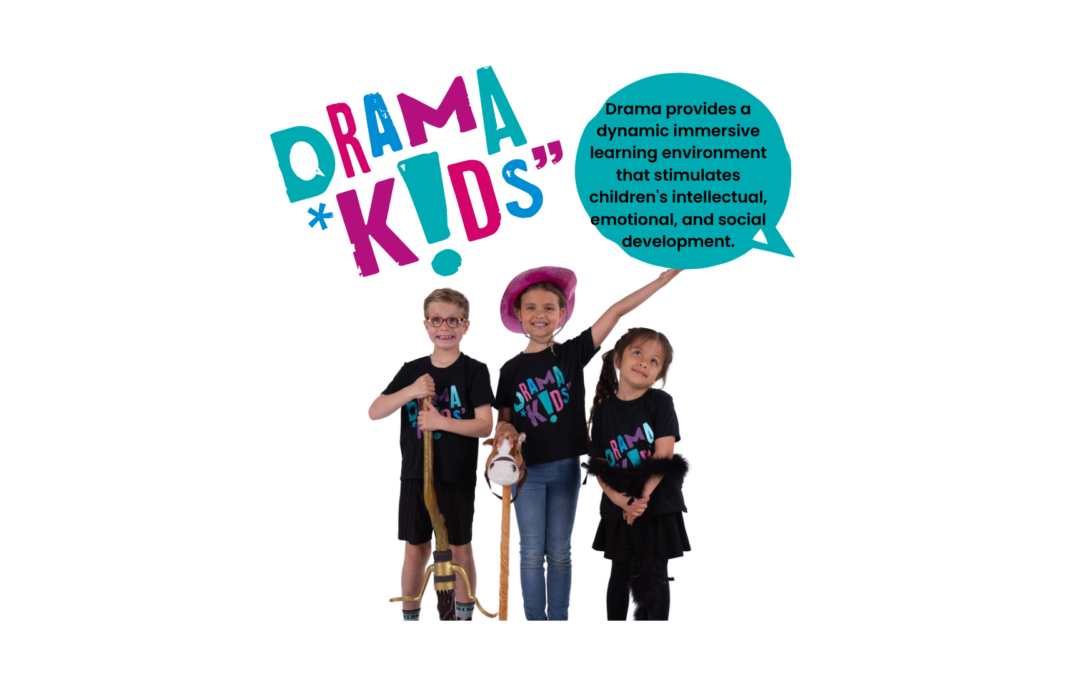Drama provides a dynamic and immersive learning environment that stimulates children’s intellectual, emotional, and social development.
Engagement and Motivation: At Drama Kids weekly lessons, activities are inherently interactive and engaging, capturing children’s attention and motivating them to participate actively in the learning process. When students are engaged, they are more likely to retain information and develop a deeper understanding of the subject matter.
Emotional Connection: At Drama Kids we allow children to explore complex emotions and experiences in a safe and supportive environment. By connecting emotionally to the material they are learning, children are more likely to remember and internalize key concepts.
Creativity and Imagination: Our weekly lessons encourages children to use their imagination and creativity to bring stories, characters, and concepts to life. This active participation in creative expression helps children to think outside the box, problem-solve, and approach learning in innovative ways.
Enhanced Communication Skills: Through our Award Winning Drama program we include activities such as role-playing, improvisation, and storytelling, children develop strong verbal and non-verbal communication skills. These skills are essential for expressing ideas clearly, listening effectively, and collaborating with others, all of which contribute to improved learning outcomes, and having fun along the way attending Drama Kids weekly one hour lessons.
Critical Thinking and Problem-Solving: Our lessons involve improvisation and thinking on one’s feet, requiring children to make quick decisions and solve problems creatively. These skills are transferable to other areas of learning, helping children to analyze information critically and find solutions to complex problems.
Collaboration and Teamwork: Drama frequently involves working as part of a team to create performances or scenes. This collaborative aspect of drama teaches children how to work together, communicate effectively, and respect others’ ideas and perspectives, fostering important social and emotional skills.
Confidence Building: Participating in drama activities helps children develop confidence in themselves and their abilities. Whether they are performing in front of an audience or collaborating with peers, children gain a sense of self-assurance that translates into other aspects of their academic and personal lives.
Cultural and Historical Understanding: Through drama, children can explore different cultures, historical events, and literary works in a hands-on and experiential way. By embodying characters and scenarios from various time periods and contexts, children gain a deeper understanding of the world around them.
Overall, drama provides a dynamic and immersive learning environment that stimulates children’s intellectual, emotional, and social development. By integrating drama as part of an extra-curricular activity parents and educators can enhance the learning experience and help children become more engaged, creative, and confident learners.
